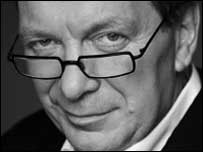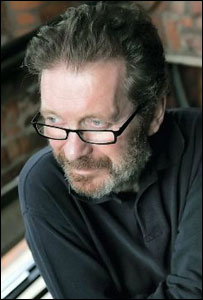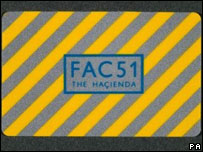|
If you
have any new information to contribute, please click
here to let me know and I will post it!
 FACTORY
RECORDS
FACTORY
RECORDS


|
|
|
LAST
UPDATE
20-Mar-2010
|
 |
|
 |
Factory Records Profile
Factory Records: The
Basics :
- What:
Factory Records, legendary label
responsible for the birth of the "Madchester"
scene in the 1980s
- Where: Manchester, UK
(though now defunct)
- Label Founders: Tony
Wilson, Alan Erasmus, Peter Saville,
Martin Hannett
- Founded: 1979
The Early Years: Club
Origins:
Factory Records began as a club in
1978, started by Tony Wilson and Alan
Erasmus. They were joined by designer
Peter Saville and Producer Martin
Hannett to form Factory Records and
released their first EP, A Factory
Sampler, featuring acts that had
played at their club, in 1979. A very
small operation at first, the label was
initially run from an office in Erasmus'
apartment. Success, however, was just
around the corner.
Joy Division and New
Order:
The first album released by Factory
was 'Unknown Pleasures' by melancholic
Mancunian rock band
Joy Division in 1979, at the same
time that their manager Rob Gretto
joined the label. The album received
great critical acclaim, the band
appeared on the front cover of the UK
music mag the NME and recorded a session
for influential BBC DJ
John Peel. Wilson credits this
success with turning the label into a
“true business”. Plague by ill health
and depression, singer Ian Curtis
committed suicide in 1980 just before
the release of their 2nd album. The
remaining members went on to enjoy huge
success with Factory as
New Order.
Other Factory Records
Acts:
Joy Division and New Order are the
two Factory Records acts that have had
the longest lasting impact on music, but
it wasn't all about them. Factory worked
with other well known acts, including:
Factory didn't only put out records,
however. The label was at the center of
a music scene of their own making - the
so called "Madchester" scene - named, of
course, for Manchester, Factory Record's
base. And at the center of that scene
was a Factory Records run club, the
famous (or infamous) Hacienda.
The Hacienda: Start to
Finish:
In 1982 Gretto had the idea to open a
Factory Records supported club in
Manchester, and thus began The Hacienda.
The club was pivotal in the evolving
music scene in Manchester in the 80s,
and many world famous DJ started their
careers behind the decks there. Designed
by Saville and Ben Kelly, the club was
immediately popular, but due to a policy
of too low entry and drink prices (and
the fact that the large majority of
customers were spending more money buy
drugs from the bouncers than drinks from
the bar), the club rarely made a profit.
However, Hacienda outlived Factory,
finally closing it's doors in 1997.
Tony Wilson:
Wilson, initially a TV presenter in
Manchester, unquestionably was the
driving force behind the label, and he
loved his city as much as he loved his
label. He was dubbed Mr Manchester for
his work in the development of the city
and towards the end of his life lobbied
heavily for a devolved parliament for
the North of England. After Factory's,
demise he set up
In The City, an annual music
industry festival often held in
Manchester that has been responsible for
launching the careers of numerous bands.
He died from a heart attack in 2007,
leaving a hole in the cultural life of
Manchester.
The Rest of Them:
Wilson tends to get all the credit
for Factory, but the other partners were
actually very crucial to the label.
Seville designed all the labels early
sleeves and had a long running
relationship with Joy Division and later
New Order. His designs were a big part
of Factory's image, and his aesthetic
fitted with Wilson Situationist
leanings. Producer Hannett's work on the
early Factory releases defined the
post-punk sound and, according to
bassist Hook, “he created the Joy
Division sound”. Joy Division's manager
Gretton insisted that the band sign with
a Manchester label, which gave the label
it's initially success.
Catalogue Numbers:
Unlike most record labels Factory had
a eccentric system of catalogue numbers
for it's releases. Rather than running
in the normal chronological order
different sets of number were used for
each band, for example Happy Monday's
releases usually had a catalogue number
ending in a 2. Other “productions” by
factory were also given numbers, FAC01
is a poster advertising a club night.
FAC61 was the number given to a law suit
brought against the label by former
partner Hannett. FAC501, the final
catalogue number, was given to Tony
Wilson's coffin.
The End:
Financial trouble eventually brought
Factory to a close. The Hacienda was
swallowing money, the label was
financing the recording of a Happy
Mondays album in Barbados, New Order's
second album costs were spiralling out
of control, and the label faced
bankruptcy. A potential rescue deal with
London Records fell through and the
company was declared bankrupt in
November 1992. After Factory's demise,
many of the acts moved to London
records, often taking their back
catalogue with them.
A semi-fictional account of the story
of Factory Records was depicted in the
film
24hr Party People in 2002.
“True Business” -
Well, Maybe Not So Much....:
While Wilson credits Unknown
Pleasures as the start of Factory as
a “true business,” it is fair to say
that the label was never run like any
other company. Few of the acts had
contracts, a fact that cost the label
what would have been a life saving deal
with London Records. When London
realized that Factory owned none of the
recordings that they had released as
they'd never had
contacts with the bands, they
recinded their offer.
In addition to not having contracts,
the labels finances were always on shaky
ground - New Order's Blue Monday
became the best selling 12” single in
the UK, but due to high production costs
the label lost money on every copy sold
of the original die cast cut sleeve.
Sending The Happy Mondays to Barbados to
make a record and allowing
recording costs for New Order's
album to spin out of control into the
hundreds of thousands of dollars range
set the label up for almost certain
failure.
Despite all of these questionable
decisions, Factory remains a lauded
label - why? The answer is probably down
to a combination of really great music,
the force of nature that was Tony Wilson
and the label's knack for creating a
story about itself.
Since Wilson's death, there have been
rumors off and on about the re-launch of
Factory, but even Wilson tried that
himself in the mid-1990s to no great
effect. Factory is as much a moment of
time in music as a great label.
|
 |
|

Anthony Wilson, the music mogul behind some of
Manchester's most successful bands, has died
aged 57.
The Salford-born entrepreneur, who founded
Factory records, the label behind New Order and
the Happy Mondays, had been suffering from
kidney cancer.
Wilson, who was also famous for setting up
the Hacienda nightclub, underwent emergency
surgery in January to remove a kidney.
He died on Friday evening (August 10th
2007)at the Christie Hospital surrounded by
family.
A spokesman for the hospital said: "Tony
Wilson died peacefully at the Christie Hospital
at 6.05pm this evening with his family by his
bedside.
"Tony was a very great supporter of the
Christie and this is extremely sad news.
"We would like to extend our sympathy to
Tony's family."
Doctors had recommended he take the drug
Sutent after chemotherapy failed to beat the
disease, but the NHS refused to fund the
£3,500-a-month treatment.
However, members of the Happy Mondays and
other acts he supported over the years stepped
in and started a fund to help pay for it.
His vision and determination played a key
role in helping to put Manchester on the map for
its music and vibrant nightlife and his
entrepreneurial skills inspired people
everywhere.
Phil Saxe, who used to work at Factory
Records with Wilson, said: "Part of me, part of
Manchester, part of modern British music has
died tonight.
"Tony was a genius, basically.
"He was a visionary in that he helped bands,
who otherwise wouldn't have made it, who were a
bit out of the ordinary.
"He helped them realise their dreams and
through that probably realised himself to be Mr
Manchester".
'An inspiration'
BBC journalist Kristan Deconinck sought
advice from him in the early 1980s on how to
launch an independent record label shortly after
Wilson had started Factory records.
"He couldn't have been more helpful and more
patient," Kristan said.
"He inspired me - and countless others - to
have a go if you believed in something.
"That in itself is a great legacy, apart from
the vision he had with his label, his shows, his
attitude - his contribution to a new culture.
"When I later met him, I found him far more
amenable than scurrilous rumours had led me to
believe and my esteem for the guy never
diminished."
'Soundtrack of my life'
Speaking before his death, Wilson reflected
on life and death.
"I used to joke in my early 50s that I'd had
such a fantastic life, I'd be happy to die," he
said.
"And then suddenly, I find some other reasons
for living and just like get excited again about
life when it comes along. So that was slightly
annoying. I think I was a lord of my own
presumption for thinking I'd be happy to die".
Tributes to Anthony Wilson have been flooding
in from across the globe - both from people who
had worked with him and those who had enjoyed
the entertainment he brought to the world.
Speaking on News 24, Radio 2 presenter Stuart
Maconie said: "There was no more influential and
important figure in music in the last 30 or 40
years.
"He was incredibly generous, giving,
enthusiastic and supportive of bands around him.
"He wasn't a businessman. He just loved the
music."
The BBC, which employed Wilson, paid its own
tribute.
"There will never be anyone quite like Tony,"
a spokesman said. "He was a true free spirit and
a passionate advocate of Manchester - the city,
its people and, of course, its music."
Fan Lewis Hart, from Hyde, Greater
Manchester, wrote: "A one off who was an
ambassador for Manchester. A huge shock."
Another fan, Ross Burton, from Annapolis,
Maryland, in the USA, summed up his many
achievements with a poignant eulogy: "Thanks
Tony for helping to bring me the soundtrack of
my life. Rest in peace mate."
Obituary: Tony Wilson
 Tony Wilson was widely regarded as the man
who put Manchester on the map for its music and
vibrant nightlife. He remained active on the
city scene until his death on Friday aged 57.
He was born in Salford's Hope Hospital on 20
February 1950.
He attended De La Salle Christian Brothers'
school, before going on to read English at the
University of Cambridge in 1968.
In the 1970s he went to work for Granada
Television in Manchester, where he fronted
programmes including music show So It Goes and
current affairs magazine World In Action.
He later went on to be long-time host of the
early evening Granada Reports.
Wilson was a founder of Factory Records in
the late 1970s, the label behind Joy Division,
New Order and The Happy Mondays.

The Hacienda was one of the most
famous clubs in the world
|
He continued to work in television even at
the height of his work with Factory records.
In 1982, he set up The Hacienda nightclub,
which became known as perhaps the most famous
club in the world in the late 1980s and early
1990s.
It became the heart of the "Madchester"
scene, playing host to bands such as New Order,
The Smiths, The Stone Roses and Oasis.
Even Madonna played her first UK gig at the
Whitworth Street club in February 1983.
The club was famous for its dance nights,
particularly house music nights where DJs Mike
Pickering, Sasha and Dave Haslam regularly
played.
In the early 1990s the club was blighted by
cash flow problems and it closed its doors in
1997.
Devolution call
The building was demolished in 2002 and
apartments were built in its place.
The semi-fictional story of the club, the
music and Wilson's life was documented in
Michael Winterbottom's 2002 film, 24 Hour Party
People.
His character was played by comedian Steve
Coogan to critical acclaim.
Wilson later went on to set up the annual
Manchester music conference, In The City, with
long-term partner and former Miss England Yvette
Livesey.
But it was not just in the music world that
he made his mark - he was also a key player in
local politics and supported a campaign for a
regional assembly for the North West.
Emergency surgery
In 2004 he set up an unofficial coalition
calling for regional devolution, called The
Necessary Group.
More recently he presented radio shows Ground
Rules and Talk of the Town on BBC Radio
Manchester and Sunday Roast on Xfm Manchester.
He was the main presenter of the BBC's
Politics Show North West.
Wilson fell ill in 2006, before undergoing
emergency surgery to have a kidney removed in
January 2007.
Doctors diagnosed him with cancer and he
started a chemotherapy course at Manchester's
Christie Hospital.
The chemotherapy failed to beat the disease
and he was recommended to take the drug Sutent,
which is not funded by the NHS in Manchester.
Members of the Happy Mondays and other acts
he supported over the years had started a fund
to help pay for his treatment.
*******************************************
“Being from another
country, Tony Wilson was representing not only a
record company “Factory Records” but a whole
city. He was in my eyes Mr. Manchester. He
signed many legendary bands including Joy
Division, New Order, Happy Mondays etc.. I had
the privilege to meet him couple of times when I
visited Manchester. He was always a pleasure to
be around him. It has been a real honor to cross
briefly your amazing path. You are and will
always be a true legend.
My Deepest Condolences to
the Wilson family.
David Sultan
|
 |
|
|
In
The spotlight
A. H. Wilson
I got the
privilege to meet with A. H. Wilson before the
opening party (January 21,
2004)
in Manchester at the Fat Cat Bar (Very close to
the Hacienda site). To keep the Factory spirit,
I got the honor to receive an official Factory
Catalogue Number for the website:
FAC421

|
|